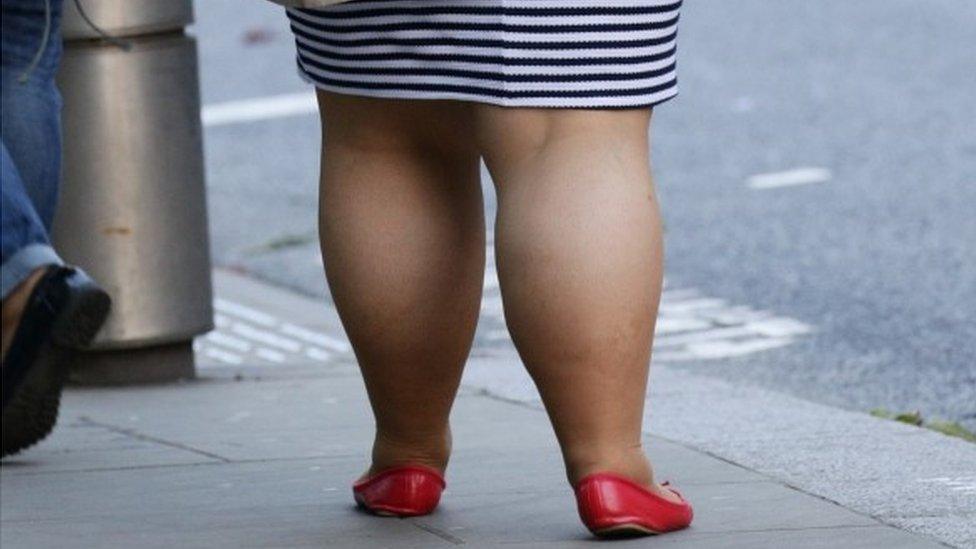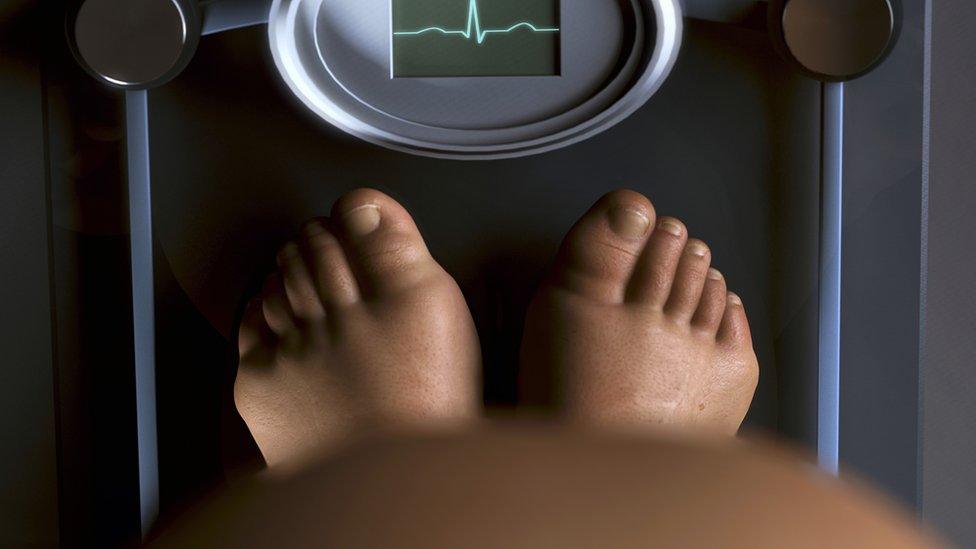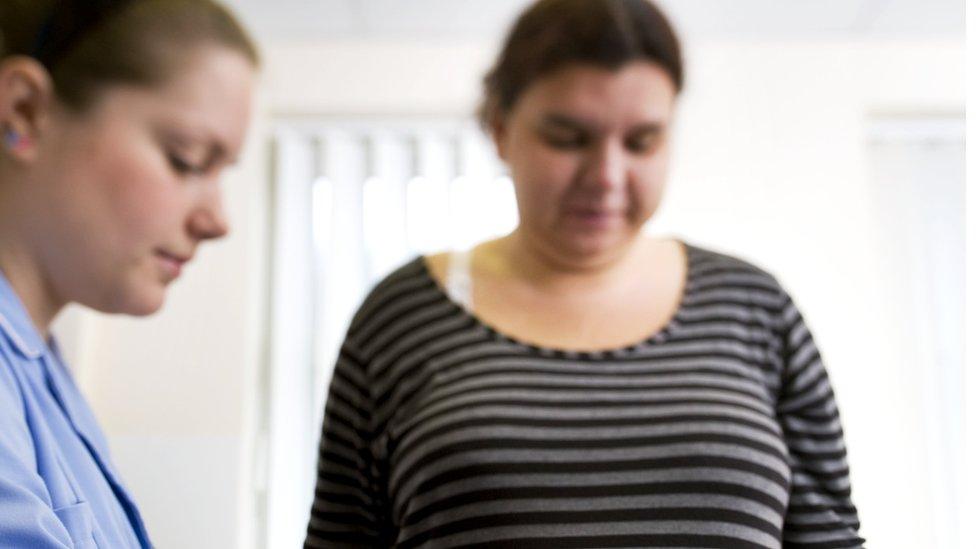Major weight-loss cancer trial starting
- Published

The first major trial to see if losing weight reduces the risk of cancers coming back is about to start in the US and Canada.
Researchers believe achieving a healthier weight could cut the risk by a fifth in breast cancer.
Around 3,200 women will take part, with half of them shifting a tenth of their body weight.
Experts said the trials were vital as it was still unclear if weight made a difference.
Dr Jennifer Ligibel, from the women's cancer centre at the Dana-Faber Cancer Institute, said: "We have known now for many years that women who are overweight or obese and are diagnosed with breast cancer have a higher risk of their cancer recurring and ultimately dying."
Gold-standard
She said this had been seen in more than 100 studies, though the explanation for it was unclear.
She said preliminary evidence showed that losing weight after diagnosis could be helpful.
But the idea has never been tested in a large randomised trial, considered the gold-standard of medical research.
The two-year trial will start recruiting overweight and obese patients, with a BMI of at least 27, in August.
After their cancer therapy is completed, the women will have regular advice from dieticians to help them reduce their calorie intake to 1,200-1,500 calories per day.

Eventually, they will also exercise for up to 250 minutes a week.
For every 100 women in the study who do not lose weight, they expect to see 23 have a recurrence of the tumour.
If the researchers are right, then they expect only 19 in every 100 women who did shift the pounds to have a recurrence.
Dr Ligibel added: "I think it would be premature to say we know these things make a difference and that's why studies are important.
"I am quite convinced but I think we need the data to really prove it, but also to look at who benefits."
It is far from clear what changes inside an obese body could be leading to cancer recurrence, but there are theories around levels of the hormone insulin or inflammation, both of which are altered with weight gain.
If the concept is confirmed then it could apply to a wider range of cancers.
Prostate and colorectal cancer incidence is already known to be closely connected to waistline, however, patients with tumours such as lung or skin cancers, which are linked to carcinogens, may not benefit.
Dr Harold Burstein, an American Society of Clinical Oncology spokesman and breast cancer doctor, said there was "mixed evidence" on weight.
He argued: "There is a tendency to overstate the benefit, as yet there's no real known benefit for these interventions - that's why they're doing the trials."
"It's not clear that if you change your weight after a breast cancer diagnosis that it affects the breast cancer coming back.
"Either because it doesn't matter, or the damage has already been done, or the tumour is what it is and does its thing regardless of what you're eating."
Chemotherapy effectiveness
Meanwhile, a study presented at ASCO has suggested chemotherapy is less effective in obese women with breast cancer.
A team at a Turkish hospital analysed data from 295 patients to show obese women were both less likely to respond to treatment and more likely to see their cancer return.
There was a complete response in 31% of normal or underweight patients compared with just 17% in the obese group.
And the disease returned after an average of 76 months in obese patients compared with 150 months in those of normal weight.
Dr Ali Riza Sever, one of the researchers at the University of Hacettepe's oncology centre, told the BBC News website: "It tells us obesity is an adverse factor when it comes to chemotherapy before surgery.
"Obesity puts you in a more disadvantaged situation."
Follow James on Twitter, external.
- Published7 January 2016

- Published13 April 2016
